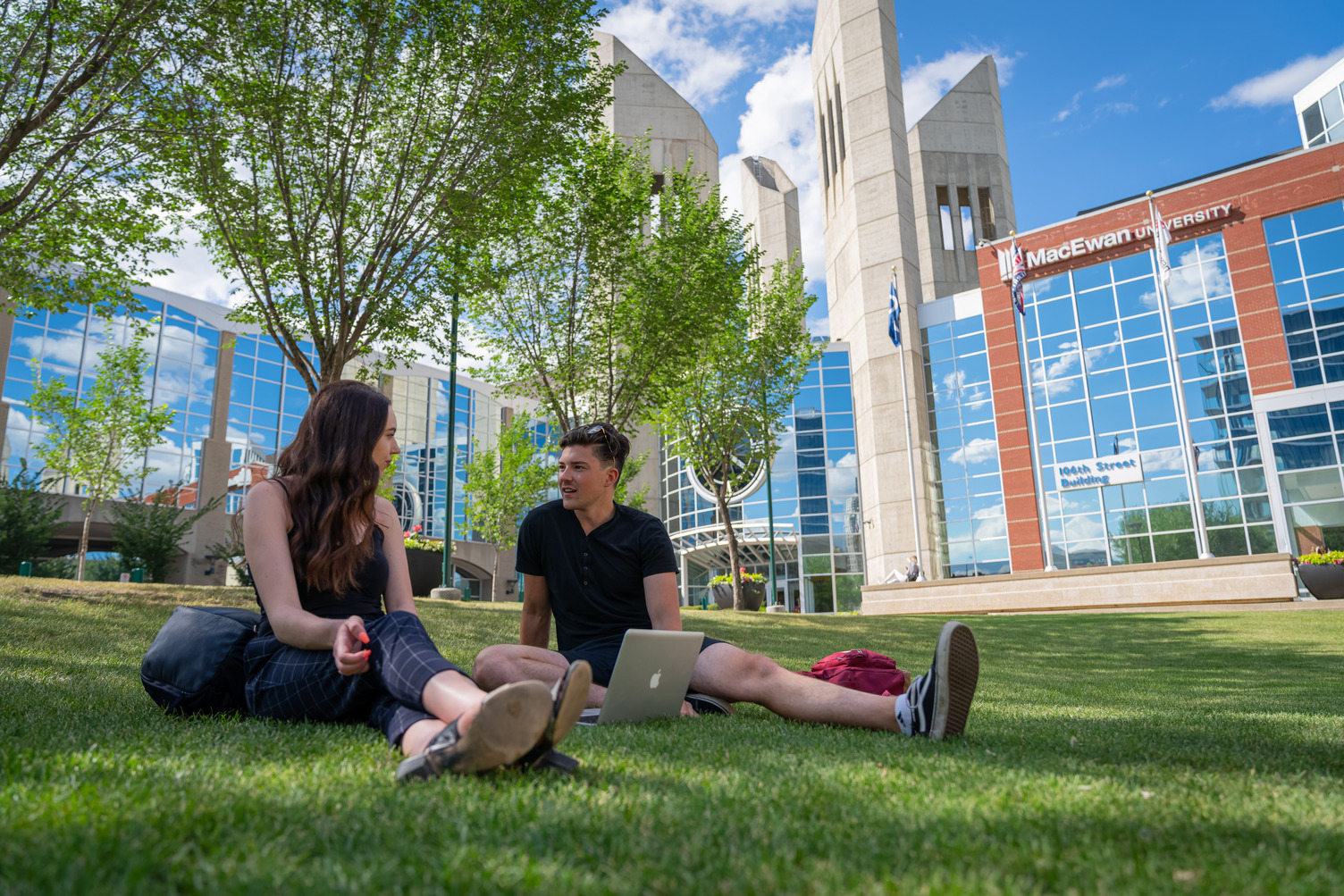Over the last several years, student demand for mental health supports on post-secondary campuses has grown, and universities and colleges have struggled to keep up. This was true even before the pandemic and has only worsened since. The McCall MacBain Foundation is supporting eleven universities and colleges in Canada to test new models and expand current programs that address some of the root causes of poor student well-being and mental health on campuses, including social anxiety, isolation, and academic stress.
In 2019, prior to the pandemic, 69% of post-secondary students in Canada reported feeling overwhelming anxiety, 51% reported feeling depressed, and 70% reported feeling very lonely, according to the National College Health Assessment (NCHA) survey.
The pandemic amplified these trends. High school students who missed out on key moments to develop and nurture relationships and had their learning impacted by changing mediums of delivery, showed up on post-secondary campuses with heightened levels of social anxiety and loneliness, and less prepared and more anxious about their academics.
It’s hardly surprising, then, that 74% of students reported that the pandemic worsened their existing mental health struggles and 61% reported that the pandemic has created new mental health challenges in a 2022 survey commissioned by the Canadian Alliance of Student Associations (CASA) in partnership with the Mental Health Commission of Canada (MHCC).
As a Foundation that has invested in the leadership potential of young people through scholarships and educational opportunities for over 15 years, we know that an investment in well-being and mental health is also an investment in helping young people thrive as the next generation of change-makers. This compelled us to work with post-secondary partners to consider how to address well-being and mental health needs on post-secondary campuses.
Tackling Root Causes with Our Investments in Post-Secondary Mental Health Initiatives
We are investing over CAD 3 million in funding to support eleven Canadian post-secondary institutions in re-thinking student experience and fostering a sense of community to increase resilience and self-efficacy among diverse student populations.

While we recognize the critical role of counselling and medical supports, we’ve chosen to focus these investments directly on addressing root causes. If students are experiencing social anxiety and isolation, then how can we create places for them to make friends and interact in meaningful ways with each other? How can we identify academic under-preparedness early, and tackle it head-on? How can we equip the campus community with the skills to identify and respond to signs of poor well-being so that students get the supports they need early?
Our approach was to identify partners who had built an evidence base around existing gaps with consideration of the specific needs of diverse students, including rural, first-generation, Indigenous, racialized, international, and 2SLGBTQ students. We have directed our investments to support a range of models including first-year transition programs, early intervention programs, training programs for frontline staff and students, and community-building initiatives.
We made a first round of investments with four post-secondary institutions in 2021 and based on initial learnings invested in an additional seven programs in 2023. We are hopeful that these investments will help grantees build thriving campus communities where student well-being, mental health, and success are mutually reinforcing.
The funds support the following projects in partnership with the respective post-secondary institutions:
Brock University: The funding supports two distinct parts. It will aid the development and implementation of an evidence-based micro-credential course called Ambassadors of Campus Well-being. The micro-credential will focus on individual and systemic factors that affect student mental health and well-being. In addition, it will facilitate the hiring of recent graduates to serve as Wellness Navigators, who will be embedded in Faculty Offices, Varsity Athletics, and the Black Student Success Centre to support mental health and well-being programming and provide navigational support to students.
Concordia University: The funding supports the existing first-year transition program, Homeroom, which places students into groups that meet weekly with trained peer mentors who deliver a comprehensive curriculum on various topics ranging from study skills to conflict management. Homeroom also facilitates in-person events to address social isolation on campus and foster community. The program continues to reach 900+ first-year students throughout the academic year.
Dalhousie University: The funding supports an extension of Together@Dal, a first-year transition program launched in 2020 with an early investment from the McCall MacBain Foundation. The extension includes supporting academic, leadership, and career advising programming, with enhanced support to address unique barriers underserved student populations face. The program continues to reach upwards of hundreds of new students each year.
MacEwan University: The funding supports a new first-year transition program that includes support for students before they even arrive on campus, cohort-based peer mentorship opportunities, skills-based workshops and an early intervention system for students who need extra support throughout their first year. The program is estimated to reach up to 5,300 first-year students over two years.
McMaster University: The funding supports a mental health education program—featuring interactive, case-based workshops—that equip graduate students with the mental health literacy skills needed to support undergraduates and their peers while preserving their own well-being. Expected to engage up to 200 graduate students in a year, the program assists students in navigating mental health systems and resources, building socio-emotional skills, and growing their social networks to beat loneliness and isolation.
Niagara College: The funding supports ConfideNCe, a new first-year transition program aimed at addressing the anxiety and academic stress of students in three high-priority applied health programs: paramedic, personal support worker, and practical nursing. The program aims to reach over 400 students over two years and is built on data collected by the College that identifies the negative impact of heightened student anxiety on retention in these programs.
OCAD University: The funding supports a suite of peer-led mental health and wellness initiatives including peer-designed, developed, and led workshops, a mental health mobile response team, as well as a network of trained peers who can connect students experiencing social isolation to appropriate supports and activities on campus. The initiatives are co-designed with students to create wellness programming that enhances mental health and builds community resilience for over 5000 students on campus. The program is informed by previous pilot project learnings that helped the University identify the most effective approaches tailored to their students’ needs.
Queen’s University: Funding supports the development and iterative adaptions of a mental health and well-being app in partnership with students to support self-monitoring of well-being and tailored recommendations for well-being support. The digital resource was based on data from the U-Flourish Student Well-being and Academic Success Study to understand and identify predictors of mental health and academic outcomes among first-year students.
St. Francis Xavier University: The funding supports the launch of a Black Student Success Centre to foster well-being for African Nova Scotian and Black students along four dimensions: sense of belonging; academic success; healing; and community. The Centre will support student mental health and well-being and will serve as a space for cultural activities and programming. The Centre seeks to directly impact 1,000 African Nova Scotian and Black students over two years and to connect with the university community more broadly.
University of Alberta: The funding supports the delivery of cultural activity workshops and outreach efforts to better foster connections between Indigenous students and Wellness Supports Services, in partnership with the First Peoples’ House and other Indigenous student groups and service areas on campus. Over two years, the initiative aims to break down silos between departments to support the U of A’s community of over 1,900 Indigenous students navigate university life and build social connections.
Université Laval: The funding supports a series of nutrition/cooking workshops across select student residences and faculties to help address the impact of food and financial insecurities on student well-being on campus. Expected to reach over 200 undergraduate students over two years, this pilot program will teach students various cooking and nutrition skills while fostering community and social connections over mealtimes.

